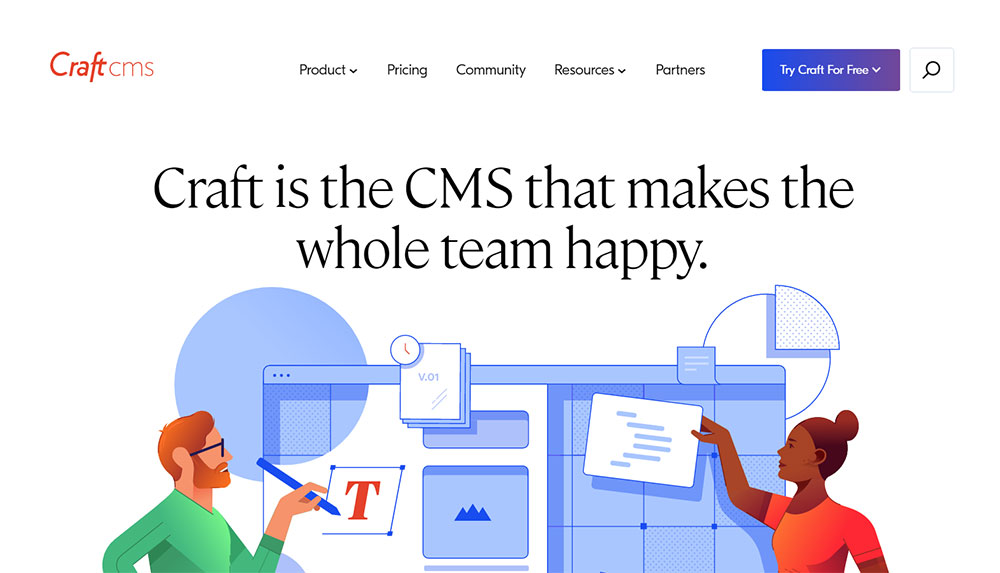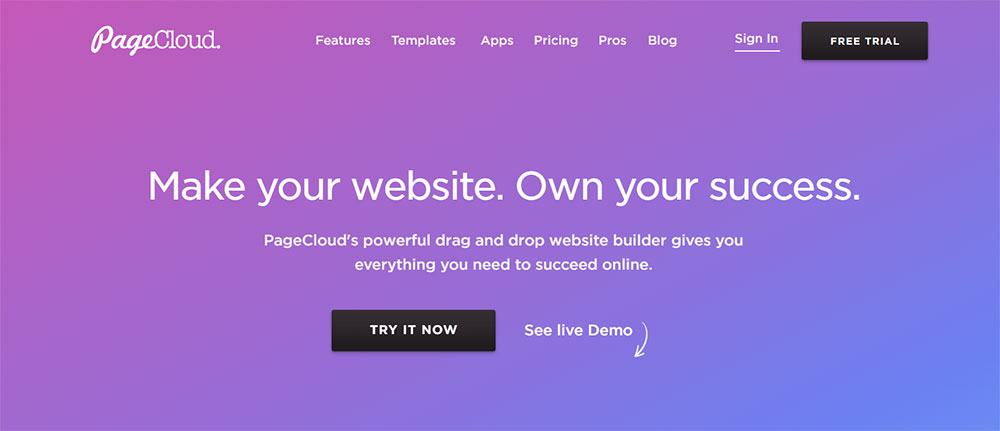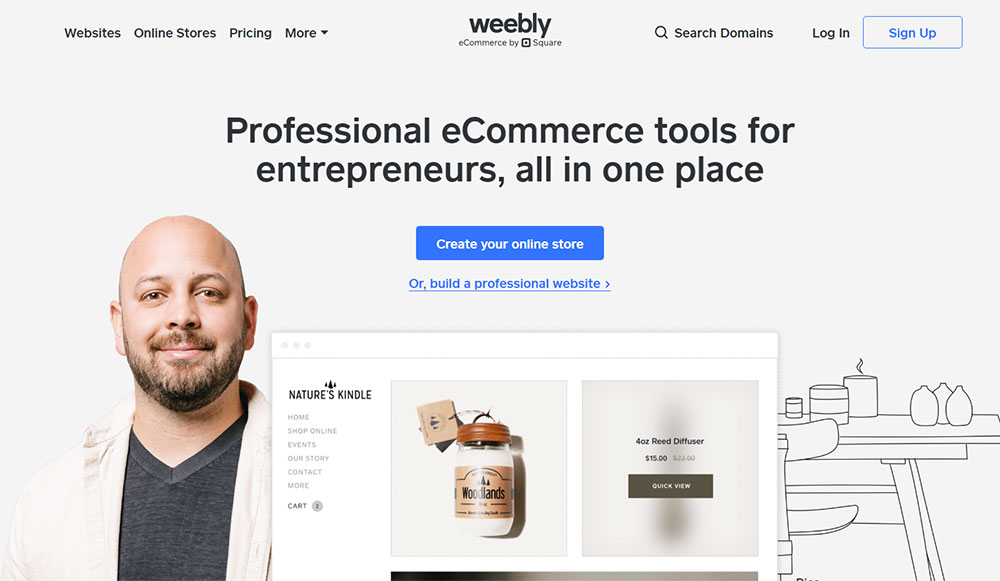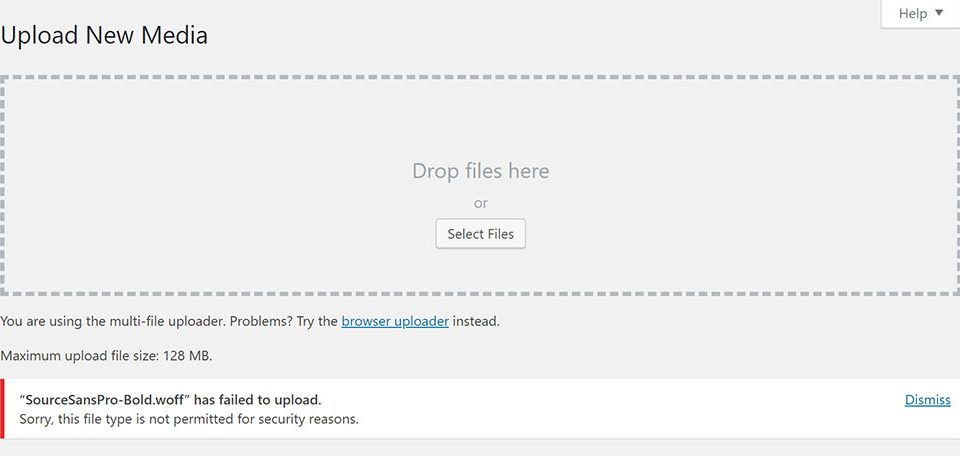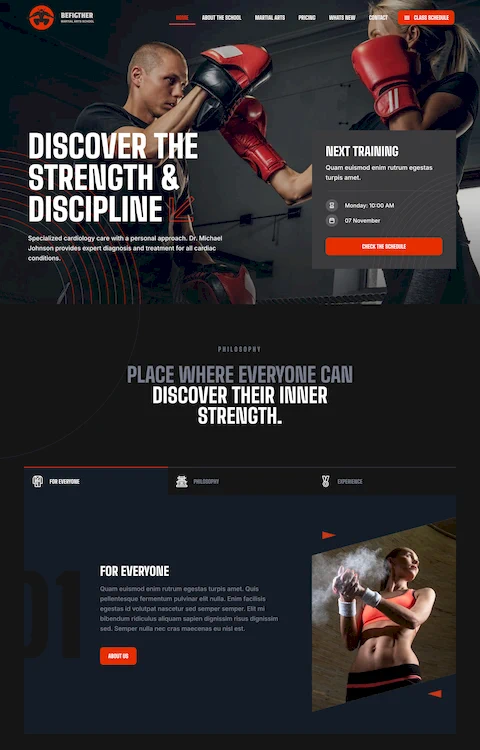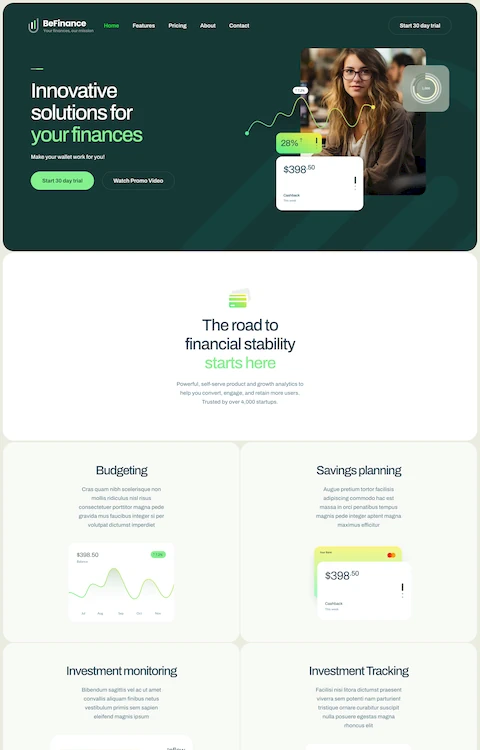
Minimalist website design: How not to overdo it
October 1, 2023
Squarespace to WordPress Migration: Easy to Follow Guide
October 4, 2023Thanks to the creation of Content Management Systems (or CMS) it has never been easier to have your own website. CMS enables people who don’t know how to code to start publishing content, to add functions and install different themes.
At the moment, the most popular CMS in the world is WordPress. It runs 27.8 percent of all websites online,and experts believe that around 50,000 new WordPress sites are launched daily. When it comes to CMS, WordPress is not the only platform available.
WordPress is the most popular; however, over time, new alternatives appeared online. These new CMS platforms offer new features and exciting designs. So, if there is something about WordPress that you don’t like, now you can just choose another platform. You have to keep in mind that every platform comes with its pros and cons, so take time to find out which one is right for you.
Even though WordPress is the first choice for many, it doesn’t mean that it is the perfect choice for you. There are many reasons why you should consider using other platforms. If you are just starting with a website, it is an ideal time for you to start looking into what CMS works best for you.
Before we check out the best WordPress alternatives, here’s all you need to know about CMS.
What exactly is a Content Management System or CMS?
CMS is the backend of a website. It is where content is stored, themes are uploaded,and small changes to the siteare done. Depending on the platform, it can have many different features, from SEO plugins to multiple users. CMS controls all aspects of a site.
Best WordPress alternatives
BigCommerce
The development of many different platforms started with various purposes in mind. BigCommerce is one of the platforms created for users that want to have an online store. Similar to Shopify when it comes to using, but different in many aspects. This platform enables users that don’t have practically any experience to start their online shop in a matter of minutes. However, it is important to remember that BigCommerce is not that great for other purposes.
This platform comes with hosting and a variety of apps enabling you to get your site up and running. BigCommerce even has blogging capabilities, though not as good as WordPress. In this niche, this platform is a great alternative to the most popular CMS out there.
Craft CMS
The Craft CMS doesn’t have a large user base, but it has proven itself to be a great content management system. However, big names like Netflix and Salesforce are using this platform, which is an excellent recommendation. It is much more complicated than other platforms,and it enables developers to change every little detail. Unlike WordPress, Craft CMS doesn’t offer themes. Instead, you can create your own using the Twig templating system.
This platform is more flexible and customizable. Furthermore, there are 18 different content types you can use on it. Although, if you don’t have any knowledge about coding and developing, this platform might not be good for you.
Drupal
One of the few open sources CMS on this list. Drupal is not for beginners, but for professionals who know how to develop a website. If you know how, this platform enables you to make websites, online journals and even large social communities. It is considered to be the best WordPress alternative on the web.
There are plugins and modules that improve its looks, but first-time users could find it challenging to use Drupal to design their website. Where this platform excels is handling a large amount of data. Because of this, it is often used for sites of large corporations and business in the data industry. You can also go for managed Drupal hosting, where you can easily integrate your Drupal site with cloud hosting. Expand your options by exploring Drupal development services and other WordPress alternatives in this informative article to find the best content management system for your needs.
Ghost
Ghost is another open source platform, based on NodeJS. Unlike other platforms, this one is developed with only one purpose in mind – blogging. It is also one of the youngest platforms on this list. It has already managed to surpass the developer’s expectations.
It is a minimalist content management system. It is light-weight and simple, but not as flexible as WordPress. It is great for its target audience – beginner bloggers. It is by far the best WordPress alternative if you only need a place to publish blog posts.
Joomla
Joomla is completely free. Just like WordPress, it is flexible thanks to hundreds of Joomla templates, plugins and extensions. Also, it is probably the oldest platform on the list – it was initially released in 2005.
Creating a website in Joomla is great because you can add pretty much any functionality you like. It can be a blog, an online shop or a website for publishing podcasts. The only problem with Joomla is the outdated code, making it sometimes slower than its competitors.
PageCloud
PageCloud is probably the visually best of all WordPress alternatives. It was developed in such a way that it enables its users just to drag and drop modules until they are satisfied with how the website looks. There’s practically no module or widget that you can’t move or replace.
However, PageCloud is not the best when it comes to handling websites with lots of pages. It is made for beginners, and if you plan on making a more complex website, this platform is not for you.
Shopify
This is the best of all WordPress alternatives for people who want to run an online store. Known for its simplicity and security, Shopify makes it easy to manage an online store. Compared to other platforms, it doesn’t offer lots of plugins or customization. However, eCommerce is what it does best.
For those wondering how to start a store on Shopify, the platform offers comprehensive guides and support to help you set up your online presence quickly and efficiently
Shopify makes it all about the product. It is user-friendly and it has lots of promotion features. While users might find it hard to design their store, there are hundreds of paid and free themes. Or you can easily find Shopify developers for hire to build an online store for your business. Where Shopify stands out is the option to sell your products directly on your social media channels.
Squarespace
Squarespace should be the platform of choice for SaaS business focusing on hosting and website creation. It is a kind of CMS platform that can be used to create anything, from an online portfolio to a business website. It has many features integrated, but it stands out as a user-friendly platform. It is limited when it comes to the available templates.
The pricing of this platform depends on what the site will be used for – business or personal. Furthermore, the more options you choose, the price will be higher.
Weebly
This platform is an online site builder, enabling its users to create their websites. It is one of the simpler WordPress alternatives out there. There are many tools and features, but not as many plugins as WordPress has. The page builder works through drag and drop, which is great for users who don’t know how to code.
Weebly is the best option for smaller websites with fewer pages. It has lots of themes that can be customized to users liking.
Wix
Wix has become popular recently, mostly due to an extensive marketing campaign. It uses the “What You See Is What You Get” or WYSIWYG editor. This CMS has lots of templates to get you started, but you can continue customizing them later.
Like other similar platforms, it has an editor that works with drag and drop tools. Another great feature of Wix is that it can also supply hosting for your website. There is practically no work when it comes to technicalities.
The whole platform is significantly different than most that you can find online. Unlike many WordPress alternatives, it is developed to enable users to get their website up and running quickly.
We have listed the best WordPress alternatives that are worth checking out. Depending on what you need, it might be easy for you to choose. Keep in mind that finding the right CMS platform might make all the difference!
FAQ on WordPress alternatives
Why do people look for WordPress alternatives?
Well, you see, while WordPress is super popular and all, it's not a one-size-fits-all solution. Some folks find it a bit too complex, especially if they're just starting out. Others might be after a more niche platform that caters specifically to their needs. And then there are those who've had a bad experience with WordPress and just want to try something new. Variety is the spice of life, right?
Are there any free alternatives to WordPress?
Absolutely! There's a bunch of them out there. Platforms like Joomla!, Drupal, and Blogger come to mind. These platforms offer a lot of the same functionalities as WordPress but with their own unique twists. But remember, just because it's free doesn't mean it's necessarily the best fit for your needs. Always do your homework before diving in.
How do these alternatives compare in terms of ease of use?
Ah, the golden question! So, while WordPress is known for its flexibility, some find its learning curve a bit steep. On the other hand, platforms like Wix or Squarespace are super user-friendly, especially for beginners. They offer drag-and-drop features which make website building feel like a breeze. But, if you're looking for something in-between, Weebly might be your jam.
Can I migrate my WordPress site to another platform?
You betcha! Most platforms understand that users might be coming from WordPress, so they've got tools and guides to help with the migration. But, a word of caution: it might not always be a smooth ride. Some elements might not transfer perfectly, so you'll want to double-check everything once you've made the switch.
Do these alternatives offer as many plugins and themes?
Hmm, tricky one. While WordPress boasts a massive library of plugins and themes, not all platforms can match that. Platforms like Joomla! and Drupal have their own extensions, but the numbers might not be as vast. That said, quality over quantity, right? Sometimes, fewer but well-crafted tools can be way better than a sea of mediocre ones.
How's the SEO game on these other platforms?
Good question! SEO is crucial, right? Platforms like Squarespace and Wix have built-in SEO tools which are pretty decent. But if you're an SEO junkie, you might find platforms like Joomla! or Drupal more to your liking since they offer more advanced customization. But remember, no matter the platform, content is king!
Are these alternatives as secure as WordPress?
Security is a biggie. WordPress, being so popular, is often a target for hackers. But, it's also got a robust community constantly working on security updates. Alternatives like Joomla! and Drupal also have strong security measures in place. But, like everything online, there's always some risk. Always keep your software updated and use strong passwords, no matter the platform.
How customizable are these WordPress competitors?
Oh, you're in for a treat! Many of these platforms offer a ton of customization options. Platforms like Drupal are known for their flexibility, while Wix and Squarespace offer a more controlled environment but with beautiful design options. It really boils down to what you're comfortable with and what your project needs.
What about e-commerce? Can I set up a shop on these platforms?
For sure! E-commerce is booming, and most platforms are hopping on the bandwagon. While WordPress has WooCommerce, platforms like Squarespace and Wix have their own integrated e-commerce solutions. And if you're looking for something more specialized, Shopify is a powerhouse in the e-commerce world.
Do I need to know coding to use these alternatives?
Not necessarily! While some platforms like Drupal might be more developer-friendly, others like Wix or Squarespace are designed for those who don't know their HTML from their CSS. But, if you're keen on learning, having some coding knowledge can always give you an edge in customization. Dive in and see what feels right for you!


